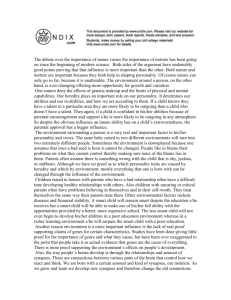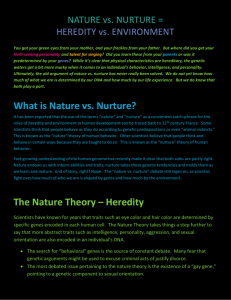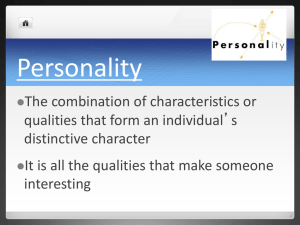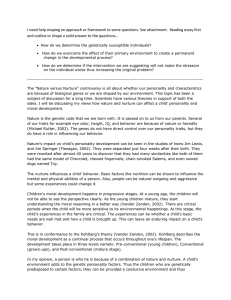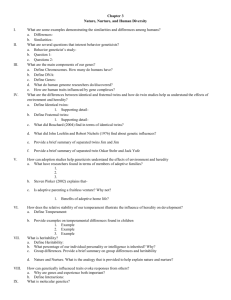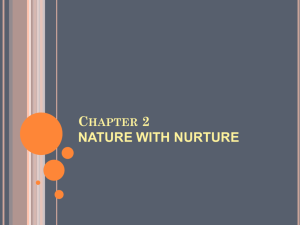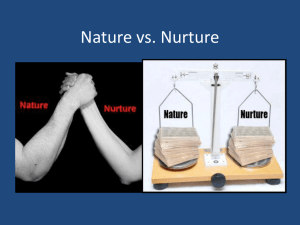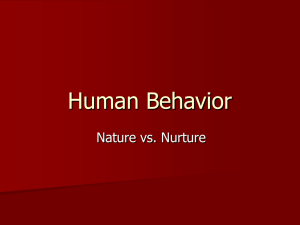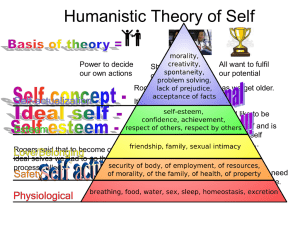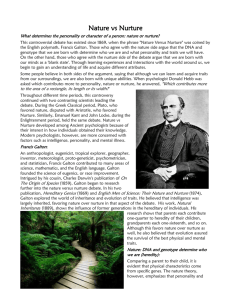скачати
advertisement
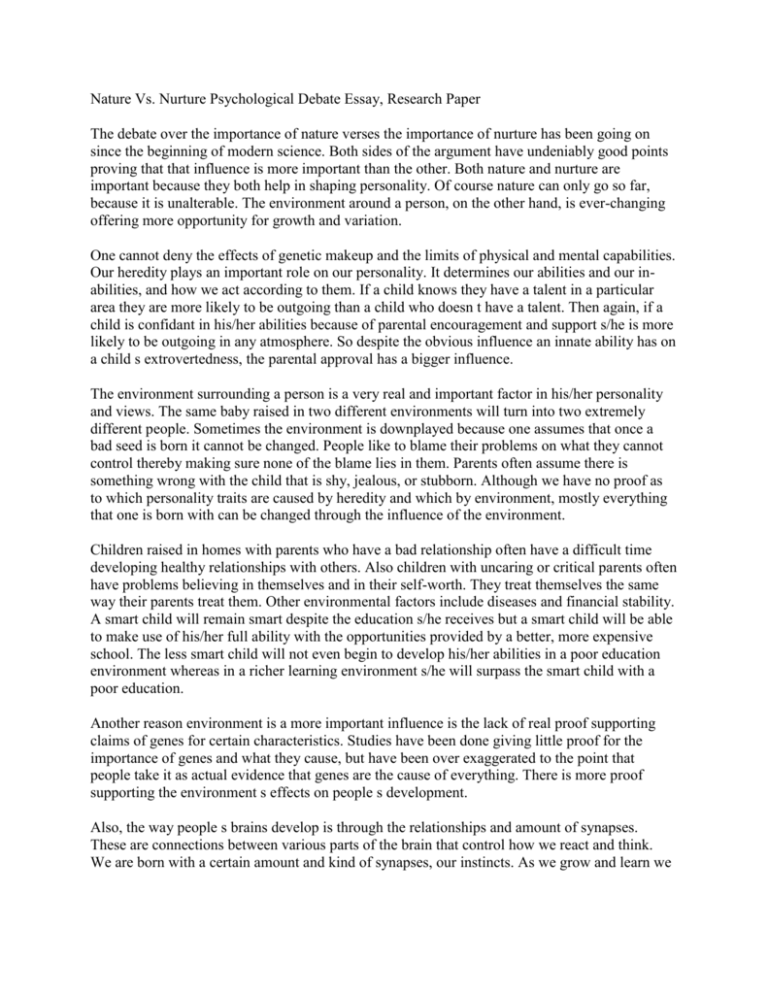
Nature Vs. Nurture Psychological Debate Essay, Research Paper The debate over the importance of nature verses the importance of nurture has been going on since the beginning of modern science. Both sides of the argument have undeniably good points proving that that influence is more important than the other. Both nature and nurture are important because they both help in shaping personality. Of course nature can only go so far, because it is unalterable. The environment around a person, on the other hand, is ever-changing offering more opportunity for growth and variation. One cannot deny the effects of genetic makeup and the limits of physical and mental capabilities. Our heredity plays an important role on our personality. It determines our abilities and our inabilities, and how we act according to them. If a child knows they have a talent in a particular area they are more likely to be outgoing than a child who doesn t have a talent. Then again, if a child is confidant in his/her abilities because of parental encouragement and support s/he is more likely to be outgoing in any atmosphere. So despite the obvious influence an innate ability has on a child s extrovertedness, the parental approval has a bigger influence. The environment surrounding a person is a very real and important factor in his/her personality and views. The same baby raised in two different environments will turn into two extremely different people. Sometimes the environment is downplayed because one assumes that once a bad seed is born it cannot be changed. People like to blame their problems on what they cannot control thereby making sure none of the blame lies in them. Parents often assume there is something wrong with the child that is shy, jealous, or stubborn. Although we have no proof as to which personality traits are caused by heredity and which by environment, mostly everything that one is born with can be changed through the influence of the environment. Children raised in homes with parents who have a bad relationship often have a difficult time developing healthy relationships with others. Also children with uncaring or critical parents often have problems believing in themselves and in their self-worth. They treat themselves the same way their parents treat them. Other environmental factors include diseases and financial stability. A smart child will remain smart despite the education s/he receives but a smart child will be able to make use of his/her full ability with the opportunities provided by a better, more expensive school. The less smart child will not even begin to develop his/her abilities in a poor education environment whereas in a richer learning environment s/he will surpass the smart child with a poor education. Another reason environment is a more important influence is the lack of real proof supporting claims of genes for certain characteristics. Studies have been done giving little proof for the importance of genes and what they cause, but have been over exaggerated to the point that people take it as actual evidence that genes are the cause of everything. There is more proof supporting the environment s effects on people s development. Also, the way people s brains develop is through the relationships and amount of synapses. These are connections between various parts of the brain that control how we react and think. We are born with a certain amount and kind of synapses, our instincts. As we grow and learn we develop new synapses and therefore change the old connections. This means that what we are born with is very soon out weighed by our experiences and environment. Both heredity and environment are important factors in shaping human personality, but environment is the more important one. Heredity only goes so far; further growth and development is formed by the environment s influence on us. Bibliography: Berkowitz, Ari. Our genes, ourselves? . Appeared originally in BioScience 46(1): 42-51 (January 1996), copyright 1996, American Institute of Biological Sciences (http://serendip. Brynmawr.edu/%7Epgrobste/Berkowitz.html) Harris, Judith Rich. The Nurture Assumption: Why Children Turn Out the Way They Do LeDoux, Joseph E. Nature vs. Nurture; The Pendulum Still Swings With Plenty of Momentum . The Chronicle of Higher Education. December 11, 1998 (http://home.att.net/ xchar/tna/ledoux.htm) http://ua-referat.com
